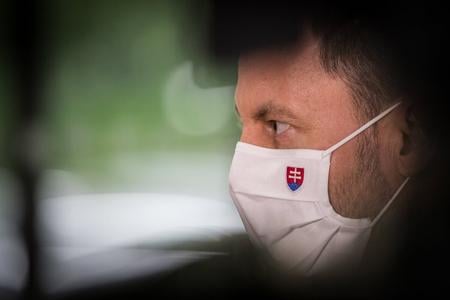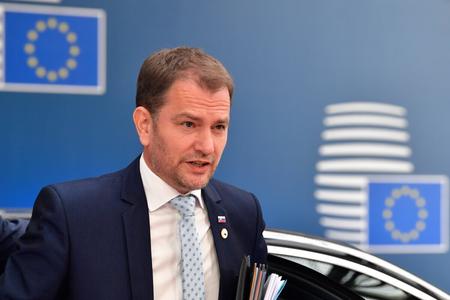The Finance Ministry has published the long-awaited plan of reforms, for which it is expected to receive €7.5 million from the Next Generation EU recovery fund.
The goal is to help the country escape the middle-income trap and achieve 92 percent of the EU 27 average in the GDP per capita by 2030.
“These reforms can catapult us to a higher quality of life,” Finance Minister Eduard Heger (OĽaNO) told the October 5 press conference.
Eight areas
Titled Modern and Successful Slovakia, the reform plan focuses on eight areas:
fiscal reforms;
green economy;
labour market and social sustainability;
education;
science, research and innovations;
health;
public institutions and regulations;
digitalisation.

The main objective of the fiscal reforms is to secure the long-term sustainability of the public finances and the anti-cyclicity of fiscal politics, and to increase tax discipline. The plan zeros in on the reform of the pension system, which should focus on the sustainability of the first pillar and the performance of the second pillar, as well as the public's awareness of pension claims, the SITA newswire reported.
It is also important to introduce bounding expenditure caps and to change investment management. From the point of long-term economic growth, it is necessary to implement a tax reform that should result in a pro-growth tax mix, meaning that the property and environmental taxes should be increased, while taxes slowing down economic growth should be reduced.
The reduction in greenhouse gases, the increase in energy effectiveness and the share of renewable resources, as well as the transition to a circular economy and sustainable transport are crucial for the green economy.
In the employment and social sustainability sphere, the ministry proposes focusing on measures to reduce long-term unemployment (meaning that a person is without a job for more than 12 months) and increase the inclusion of disadvantaged groups, according to SITA.
As for education, the quality of the teaching process, its availability and inclusion are prioritised. The reforms in science, research and innovations should help kick off the knowledge-based economy.
The Finance Ministry also stressed the importance of health care for the quality of life, which is why the reforms should focus on the whole sector, not just some partial fields.

To improve economic growth, it is necessary to have a transparent, corruption-free and efficiently regulated environment. To achieve this, both public and private investments are necessary, as well as the development of human potential and economic stability.
Changes to digitalisation of public services and the completion of the digital network are also vital to kick off the economy, SITA wrote.
Public discussion to start
The key factors in all these fields are Slovakia’s pledge to progress towards the developed economies, the ministry stressed.
The document, prepared by analysts and public sector experts, was commented on by about 100 experts from non-governmental and business sectors.

“By publishing this vision, a broad public discussion necessary for supporting society’s demand for reforms and correctly-set investments starts,” the ministry wrote.
This means that people should decide which reforms should be carried out, Heger said during the press conference.
The final document needs to be submitted to the European Commission by April 30, 2021, but no sooner than the respective legislation is approved on the European level. This may happen in January 2021, SITA reported.



 Finance Minister Eduard Heger introduces a new reform plan for Slovakia. (source: SITA)
Finance Minister Eduard Heger introduces a new reform plan for Slovakia. (source: SITA)